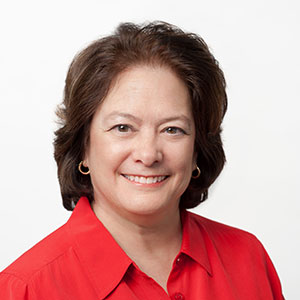Occupational health and safety aren’t confined to the physical and industrial protection of workers. Most of the time, job responsibilities take a toll on our mental health. By recognizing that workers’ emotional and mental struggles are as equally important as their physical pain, Anita Tarab was able to start conversations around it and stir workers to be more open to receiving help.
Anita is the Global Sr. Director of Sustainability, Environment, Health, and Safety at Google Data Centers. She is responsible for ensuring the health and safety of employees and contractors at all Google data centers and construction sites across the globe. She trains company leaders to become more vulnerable, share their stories, and speak from their hearts.
In this episode, you will hear how our guest combined her knowledge and experience to drill down the causes of mental health issues among workers in the mining industry and in the tech company she currently works at.
Episode Quotes:
What differences have you observed as you transitioned from mining to a giant tech company?
[00:04:39] There was an absolute focus on safety in mining because we talked about life and death, and indeed, people did die. When you go into tech, and they’re going, what do you mean? Will I fall out of my desk chair? But the data centers themselves had a lot of issues, especially with electrical safety, a tremendous amount of power that goes into data centers.
What are your responsibilities as Global Senior Director of Sustainability, Environment, Health, and Safety?
[00:06:40] We really have three missions, right? Protect the workers or anyone who comes to work on our site, not just Google people, but anyone who comes to work on or near a Google site. And that doesn’t mean just a data center. It could mean a leased property or a warehouse. And those are often not Google employees, but I look at it as a moral responsibility to them.
The second part of our mission is to protect the innocent. So nothing leaves our sites, no spills and no air emissions, being completely 100% in compliance with the regulatory requirements, no matter where we are in the world is incredibly important to us.
The final leg of that three-legged stool is to protect Google reputationally. I don’t ever want to be in the news because of something that we didn’t do, or we didn’t do correctly, and protecting the environment and protecting people who come in contact with our facilities.
What mental health and work-related challenges have you witnessed among workers?
[00:08:22] Several years ago, I looked at who we were and said, we’re physically protecting people, but are we protecting them emotionally? I looked at the things that drive construction workers or even data center workers or people who are on the road a lot to despair. And I was able to check almost all of the boxes in construction. They’re often travelers who live in motels.
It’s a very macho environment where talking about your problems and how you’re feeling just as not exist, you can see within the construction industry, that the suicide rate is incredibly high.
[00:09:57] The data center environment is also similar. Many of our workers come out of the military. It is another sort of very macho environment. Some do talk to each other, but if you’re even slightly different if you’re gay or BI or trans if you’re not white, it is not as fun place to work as it could be.
On incorporating diversity, equity, and inclusion into her team’s work and program.
[00:22:34] We’ve contracted with a group called Black Girl Doctor. It is a team of essentially female Black psychologists who do monthly seminars open to whoever wants to be there but
focused on the Black community to come in and just talk with them and to speak. That’s picking up some steam. I believe we need to bring in Spanish-speaking psychologists to do something very similar. Holes for us right now are the LGBTQ community where we really need to start focusing in that area as well.
When things are stressful or tough, how do you take care of your mental health?
[00:31:22] I take a lot of walks; half-hour, 45 minutes, and an hour. It’s just a huge part of my day. I walked with my partner, so it actually gives us an opportunity to just chat, which is really nice. When I’m really, really stressed, I bake. Because baking is precise, and you can’t be distracted. And if you are, it’s a big disaster. Just weighing out the flour and weighing up butter is a very precise thing. Watching bread rise, I can’t think of anything less stressful. But it really helps. And I spend a lot of time in my garden. I made it a point this spring through summer till just around now to not eat any vegetables that I haven’t grown. I’m running out of those right now, though. I also have some colleagues and friends I talked to, and that makes a big difference as well.

